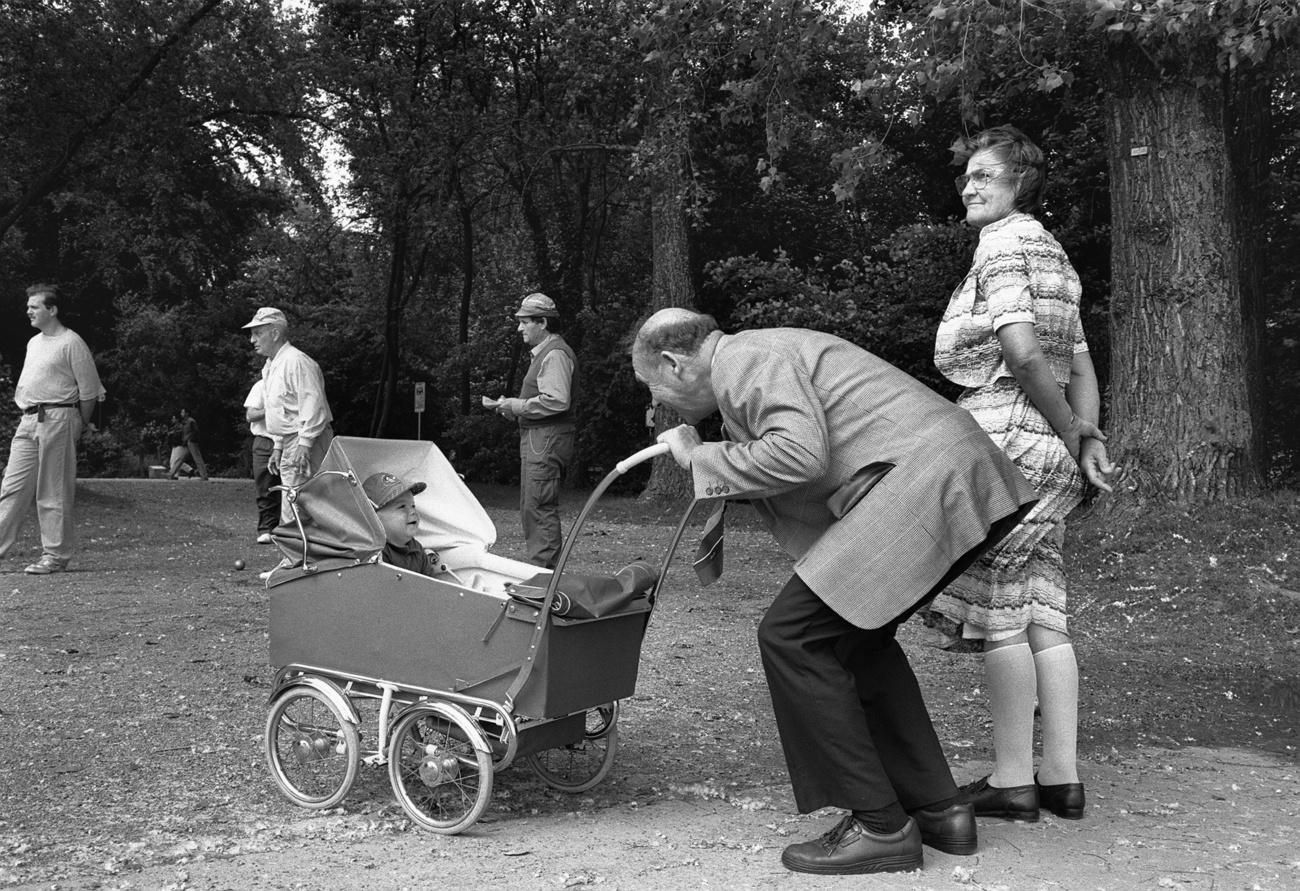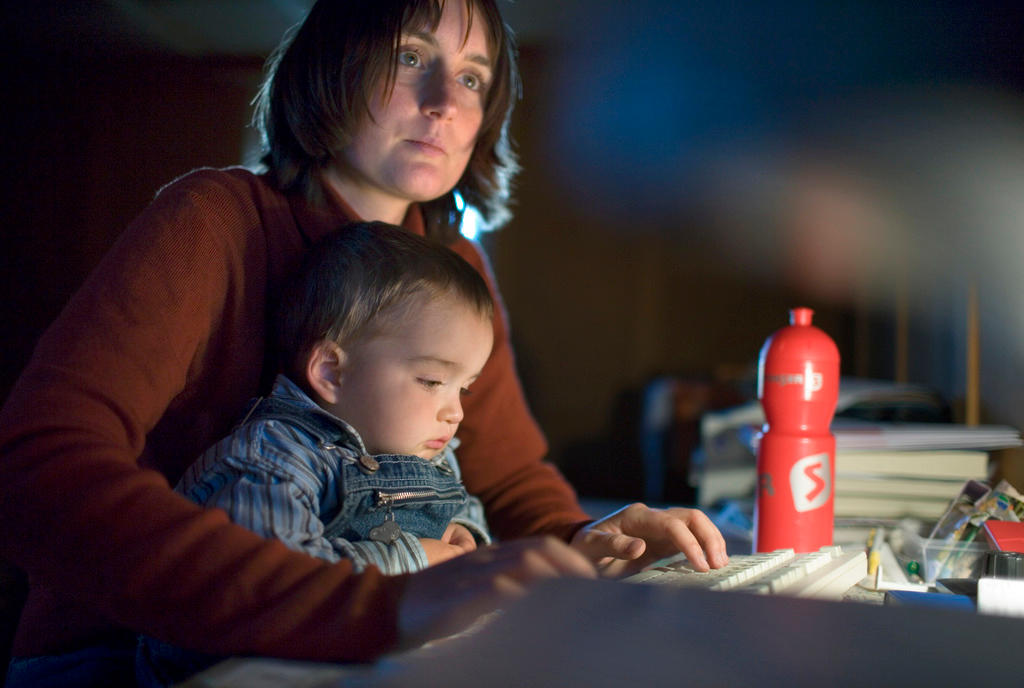Swiss people want more children than they’re having

Marriage or partnership is still by far the most popular way of life for the Swiss. Having children is less straightforward, with women particularly fearful of negative career consequences.
Some 30% of university-educated women across all age groups are childless, while 70% of them say they fear the effects a child would have on their career, reports the “Families and Generations Survey 2018External link”, released by the Federal Statistical Office (FSO) on Monday.
Fears of professional damage are less pronounced in other categories: for women who did not attend university it’s 62%, university-educated men 37%, and secondary-educated men 30%.
Attitudes towards women with pre-school age children have shifted over time. In 1994-1995, just under half of women agreed with the idea that it was detrimental for such a young child when its mother went off to work. In 2018, this view was held by 27% of women.
Among men, while 60% thought it was damaging for a young child’s mother to go to work in 1994-1995, in 2018 the number fell to 36%.
Dreams and reality
All this doesn’t mean that people don’t want to have children: indeed, over 60% of women and men between the ages of 20 and 29 say that they would like to have two. But the reality is different, and among 50 to 59-year-olds, just 40% of people have achieved this wish. Around a quarter of people from this age bracket are childless.
It also doesn’t stop people from becoming a couple. Three-quarters of people in Switzerland between the ages of 18 and 80 form a couple, and the large majority of these physically live together. Of those couples that have children, 90% are married.
The ways in which couples develop hasn’t changed much over the years. The most common paths to meeting romantic partners are still through friends, at school, at work, or during a night out. Internet dating, though growing considerably, was responsible for 20% of the couples formed over the past five years.
The FSO survey appears every five years and also covers family-related issues like childcare and housework. It is available in its entirety in FrenchExternal link, GermanExternal link and ItalianExternal link. The 2018 version surveyed 16,518 people between the ages of 15 and 79.

More
Mothers face double-edged sword in Swiss workplace culture

In compliance with the JTI standards
More: SWI swissinfo.ch certified by the Journalism Trust Initiative




You can find an overview of ongoing debates with our journalists here. Please join us!
If you want to start a conversation about a topic raised in this article or want to report factual errors, email us at english@swissinfo.ch.